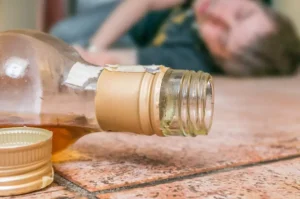
You’ll hear people say, “I shouldn’t have gotten out of bed this morning.” This reflects the negative thinking that just draws more and more to it. Gratitude is defined as the quality of being grateful and the readiness to show appreciation for and return kindness. Basically, gratitude in recovery gratitude is seeing what is good in life and the goodness in others. The flip side is being resentful and seeing what’s wrong in life, not what’s right.
Learn About Mental Health
- We’re ready to make sure you have the support you need to achieve lifelong recovery.
- The flip side is being resentful and seeing what’s wrong in life, not what’s right.
- Gratitude plays a pivotal role in Alcoholics Anonymous (AA), acting as a cornerstone for recovery.
- Gratitude is more than just a fleeting emotion; it is a robust tool that can transform lives, particularly for those on the path to recovery.
- In embracing gratitude, individuals unlock the potential for profound personal growth and enduring sobriety.
During active addiction, we may have taken friends and family for granted or overlooked the simple pleasures in life. And when we looked for the worst qualities in every situation, we created a self-fulfilling prophecy of negativity. Our Treatment Advisors are available 24 hours a day to help you or a loved one access care. We’re ready to make sure you have the support you need to achieve lifelong recovery. Reach out to someone you like and trust, and ask to exchange gratitude. When you hear their perspective, when you see where they look for meaning, your mind will respond in kind.

The Benefits of Meditation and Mindfulness in Mental Health Recovery
- This change in perspective plays a crucial role in significantly enhancing mental and emotional well-being.
- Through gratitude, people in recovery can build a robust social network, enhancing their emotional resilience and commitment to sobriety.
- Unveiling the hard truth about substance abuse in foster care and exploring solutions for affected youth.
- Recovery from addiction, as well as from a wide variety of health issues and traumas, naturally fosters feelings of gratitude.
When we walk through life and see everything that is wrong, everything that isn’t going our way, everything that we wish was different, we will continue to see more and more of the same. Explore effective medications to help stop drinking, and take a step towards liberating yourself from alcoholism. Discover why some signs of addiction are puzzling and learn to recognize the complex behaviors behind them. Discover how a heroin addict started by prescription painkillers, Sober living house revealing the stark path to addiction. Discover what is the reversal of opiate activity, its mechanisms, effectiveness, and impact on opioid overdose deaths.
- Discover vital things to remember for parents of addicts to foster recovery and support a healthier family.
- When that muscle grows strong enough, we will reflexively notice the good, and we will see something’s benefits before its real or imaginary drawbacks and limitations.
- This creates a virtuous cycle of positive thinking that can improve mental and emotional health.
- You’ll notice more things to feel grateful for, and you’ll open yourself up to new definitions of goodness and beauty.
- When we focus on what we are thankful for, it not only makes us feel good but also helps us to see the world in a more positive light.
- Gratitude can help you find consistent happiness and contentment, making you feel more optimistic, enthusiastic and joyful while reducing feelings ofdepressionandanxiety.
Daily Gratitude Practices
Through various practices, it has been shown to transform mindsets, improve mental and physical health, and reinforce social connections. As we explore the power of gratitude, we’ll uncover its profound benefits and practical strategies for integrating gratitude into the daily life of someone in recovery. As I navigated my way through addiction recovery, I discovered the incredible power of gratitude. In this section, I will discuss the various ways in which gratitude can aid in addiction recovery. We’ll explore how practicing gratitude can help us overcome negative thinking patterns and view our situation with hope and positivity.

Gratitude’s Psychological and Emotional Benefits
These simple yet effective methods not only nurture gratitude but also emphasize the importance of community and connection, vital components for maintaining sobriety. Feeling grateful triggers positivity that reflects in your subconscious mind influencing your behavior towards people around you. Being able to recognize all those who help us get through life brings a sense of radiance into our everyday demeanor setting an example that paying it forward only leads to prosperity. When we worry about relapse or feel resentment or other negative feelings creep in, it’s a great opportunity to cultivate gratitude. It’s an attitude of appreciation where we internally acknowledge the blessings that our life already contains, and we shift our focus away from what we lack. Gratitude opens the door to positive emotions and experiences that can nourish our minds and bodies.
Crucial Things to Remember for Families of Addicts
Individuals who https://ecosoberhouse.com/ practice gratitude report heightened levels of optimism and life satisfaction, effectively diminishing their chances of experiencing depression and anxiety disorders. Beyond the scientific evidence supporting gratitude’s impact on mental health, many people report experiencing personal growth and transformation through regular practice. Gratitude cultivates a humble and appreciative attitude, transforming the way individuals in recovery perceive life and interact with others.
